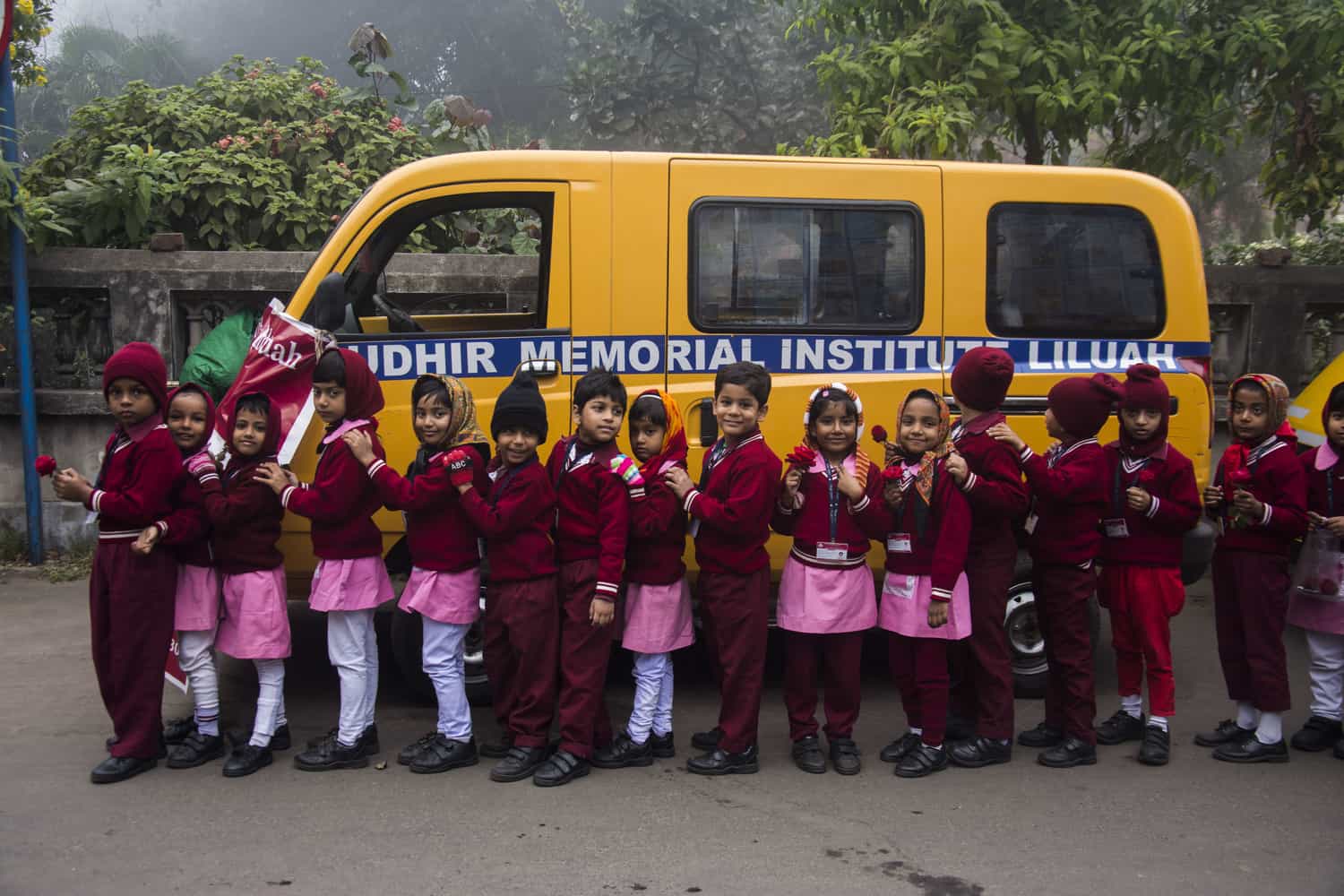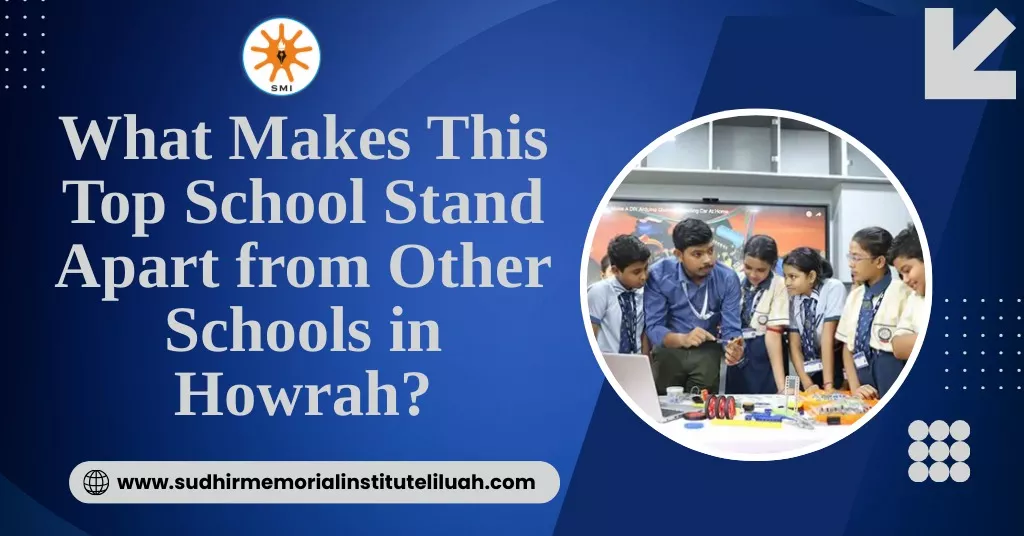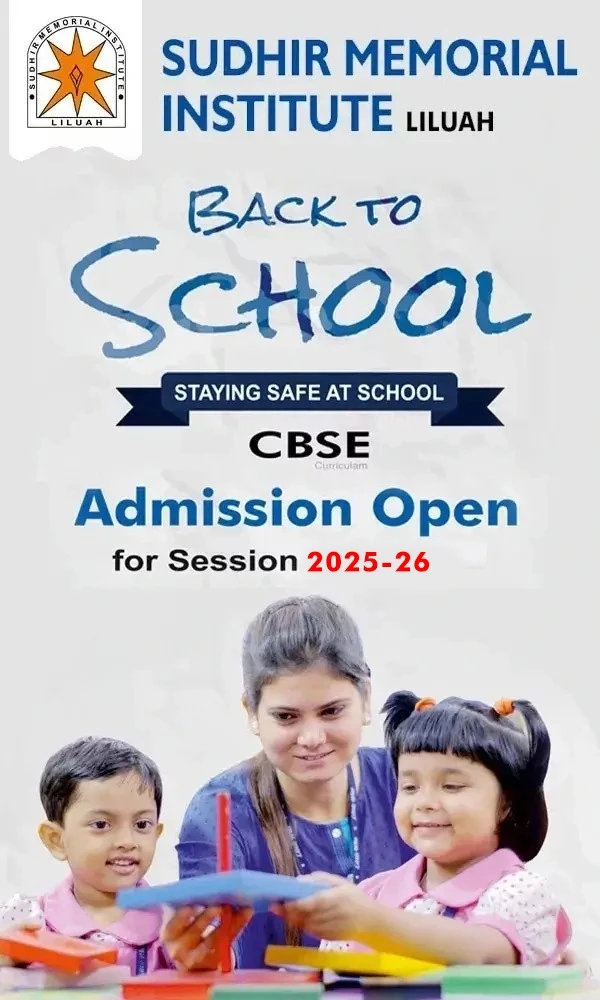Authorities at Sudhir Memorial Institute Liluah, one of the cbse board school in howrah, believes that the success of a country largely depends on how successful its education system has been. These experts have found certain flaws in the Indian education system. Here’s some of that listed below-
The education system that exists today may be good to score marks, but it utterly fails to retain the knowledge once the students have completed their examinations. This results in young minds being stifled at an age when they should be asking questions, learning and gaining knowledge, as well as, developing a thirst for more knowledge. This solves the dubious mystery about why Indians, for the last few decades, have not been able to invent or innovate at a scale that could revolutionise the way we live in the 21st century. This is in spite of the fact that lakhs of engineers and scientists graduate from their respectable academic institutions year after year.

Our Indian education system is rigid, rusty, as well as, mundane. It hardly evokes an interest among students that could ignite any kind of scientific spark to carry forward in their lives. This is again the reason why we have remained a country that totally dependent on foreign countries for our wares. We have literally remained satisfied with the inventions of ‘zero’ more than 2000 years ago.
Despite the fact that the daily lives of common people riddled with a range of problems like water shortage or pollution in the cities, rising fuel prices, or mass transport systems, there is hardly any Indian who has come forward with innovative ideas or solutions that could solve the problems or even mitigate them. So regarding the quality of our scientific human resource pool, we have nothing but our basic education system to blame.
It is evident in the present education system that the teachers want them to do precisely what they teach them, and the children blindly follow this rote learning, bookish ways. In this situation, it also restricts the children from questioning teachers like for example as to why they can’t resort to other methods when they too are the right ways of solving the sums or even to the point of raising doubts or queries about something that they feel needs to be carried out. Hence what the student is actually doing is not learning, but rather cramming and mugging to score marks.
Educational and psychological experts admit that such a style of studying may be good to score marks, but they fail to retain the knowledge once they have completed their examinations. This leads to the young minds being stifled at an age when they should actually be asking questions, learning and gaining knowledge, and developing a thirst for more knowledge. This is the seed that ignites inventive and innovative tendencies among the children even as they grow into adulthood.
top cbse board school in howrah also believes that The present education system simply does not allow a child to relax and learn or think about what he or she has learnt. Schools have become more like a growing industry. Whereas, it should be a more organic one.
Teachers do admit that the problem rises from the class-oriented, syllabus-based teaching methods resorted to by the prevalent education system in India. What is needed in schools is that children should be introduced to the basics of everything that matters to his/her life. Of course, there should be general studies, which covers the basics of all subjects with emphasis given on the child’s logical, as well as, critical thinking. What matters is what the child has learnt at the end of the day, and not the number of lessons covered.






